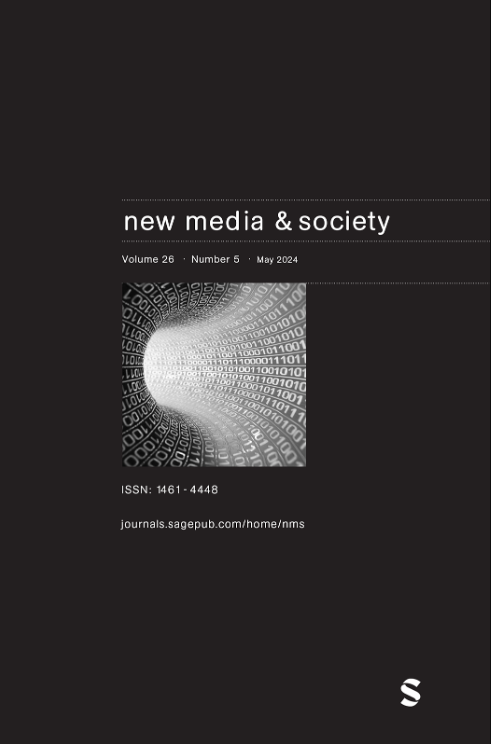揭示智能手机过度使用和断网策略的动态:纵向洞察
IF 4.5
1区 文学
Q1 COMMUNICATION
引用次数: 0
摘要
这项为期六波的纵向调查研究调查了智能手机过度使用感与使用基于技术的断开策略之间的关联。样本在年龄、性别和教育水平方面代表了荷兰人口(N = 1674)。线性混合模型显示,感知到的过度使用与自我报告的屏幕使用时间和减少屏幕使用时间的动机呈正相关。过度使用感知较高的人更有可能在随后的两个月内采取断网策略。然而,令人惊讶的是,在个人层面上,我们发现,当一个人经历的过度使用比平时多时,他们并不更有可能采取断网策略。此外,在过去 2 个月中使用断开连接策略与更高的过度使用感和自我报告的屏幕使用时间有关。这些发现共同表明,当人们对自己的智能手机使用情况不满意时,并不总是会采取行动,而当他们采取行动时,基于技术的断开连接策略并不能有效减少智能手机的过度使用。本文章由计算机程序翻译,如有差异,请以英文原文为准。
Unraveling the dynamics of perceived smartphone overuse and disconnection strategies: Longitudinal insights
This six-wave longitudinal survey study investigated associations between perceived smartphone overuse and the use of technology-based disconnection strategies. The sample was representative of the Dutch population regarding age, gender, and education level ( N = 1674). Linear mixed models showed that perceived overuse was positively related to self-reported screen time and motivations to reduce screen time. People with higher perceived overuse were more likely to adopt disconnection strategies in the following 2 months. Yet, surprisingly, at the within-person level, we found that when someone experienced more overuse than they normally do, they were not more likely to adopt disconnection strategies. Moreover, using disconnection strategies in the previous 2 months was related to higher perceived overuse and self-reported screen time. Together, these findings suggest that people do not always take action when unsatisfied with their smartphone use, and when they do, technology-based disconnection strategies are not effective in reducing perceived smartphone overuse.
求助全文
通过发布文献求助,成功后即可免费获取论文全文。
去求助
来源期刊

New Media & Society
COMMUNICATION-
CiteScore
12.70
自引率
8.00%
发文量
274
期刊介绍:
New Media & Society engages in critical discussions of the key issues arising from the scale and speed of new media development, drawing on a wide range of disciplinary perspectives and on both theoretical and empirical research. The journal includes contributions on: -the individual and the social, the cultural and the political dimensions of new media -the global and local dimensions of the relationship between media and social change -contemporary as well as historical developments -the implications and impacts of, as well as the determinants and obstacles to, media change the relationship between theory, policy and practice.
 求助内容:
求助内容: 应助结果提醒方式:
应助结果提醒方式:


